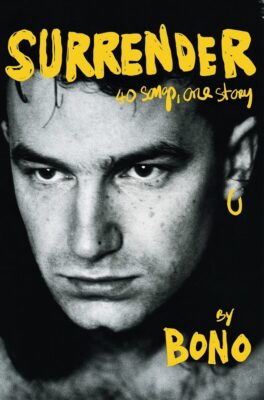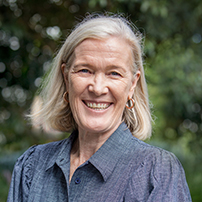I’ve never been a huge U2 fan. Growing up, it was my older and cooler sister who blasted them out of the stereo. But having just finished his book, I’d now call myself a fan.
Here are three ways Surrender speaks to those of us looking to make a better world for all.
Following Jesus In Humility
Surrender will likely be a difficult book for the atheists. Bono could be described as an unconventional Christian—difficult to fit into a box—but his faith is genuine. His faithfulness in following Jesus is often confronting in its intensity, and nearly broke up the band at one point.
Surrender is liberally peppered with biblical references as Bono grounds his life’s work in Scriptures like:
And what does the Lord require of you?
To act justly and to love mercy
and to walk humbly with your God. Micah 6:8
His personal prayer, the one he prays with his band, his family and in his own personal reflections is, ‘Lord, make me useful’.
Throughout his life, Bono has put himself in the hands of the God who can move mountains—surrendering his own will to God’s. And this has informed Bono’s efforts to bring relief to people living in the context of poverty, hunger, and disease. It’s a simple prayer, based on a deep understanding that God works through his people to change the world.
Our Help Is Welcome, But Our Egos Are Not
As a songwriter, Bono is most satisfied ‘working in the liminal space’. If he’s going to sing about the light, he must also sing about the dark. He sings about big topics that go beyond the sentimental, and give room to explore emotional depth and complexity common to all our lives—love, pain, loss, joy, sorrow. It’s one of the reasons U2 songs are so popular—we can all relate to these themes.
This same depth and exploration is also evident in his humanitarian work. Bono is driven to help because he knows he can, and should. But he’s also realistic and conscious of his own tendency towards self-importance—he’s a lead singer, after all. Investing in international developmental, while avoiding arrogance, is a concern shared by many better world seekers because we care about the dignity of all people.
Bono reflects at length on how he’s grown, and continues to grow as he listens and learns from people living in vulnerable communities.
A Broad Tent
Christians are quite good at being a united body. . . until we start talking politics. Bono grew up as the son of a Catholic father and Protestant mother in the Republic of Ireland. As a result, he developed an ability to work towards a common goal. When asked to pick a side regarding The Troubles, U2 famously chose the Peace Process.
Later, when Bono was trying to persuade powerful and wealthy people to drop debts against developing nations, increase foreign aid budgets, or fund HIV medication, he tapped into that ability to work with all ‘sides’ of politics. He’s negotiated with George W Bush, Warren Buffett, and many others.
‘I was about to make friends with people I’d always presumed were the enemy, and fall out with people I thought would be friends’ said Bono. ‘I was about to discover that the left does not have a monopoly on compassion for people living in poverty.’
Bono argues that indulging in tribalism comes at the very great cost of our impact. When we work in partnership with each other, we can achieve much more. And when our goal is to end poverty, we must!

Bono seems to have an endless number of stories where he is the pragmatic negotiator, smoothing out the political and logistical wrinkles with the end goal of ensuring that hungry people can eat. He knows he’s ‘hustling’, and even compares himself to a salesman.
But what’s wrong with telling wealthy people to be generous?
He’s only following Jesus.



 Melissa Lipsett,
Melissa Lipsett,
